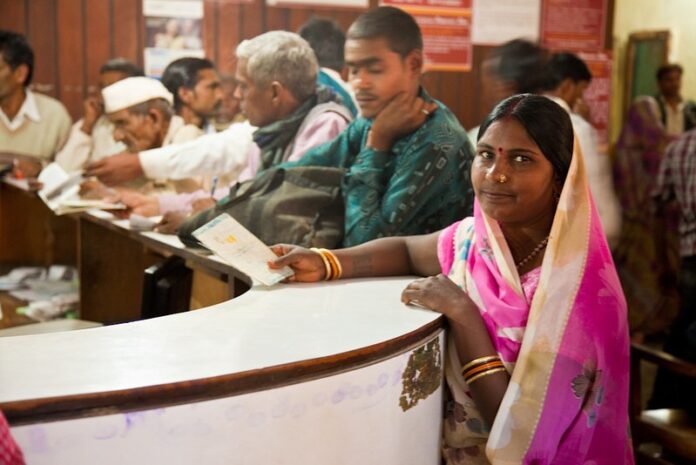A recent order of the Ministry of Rural Development has created a situation where a majority of NREGA workers cannot be paid.
On January 30, 2023, the Ministry of Rural Development (MoRD) told state governments that “all payments to the Mahatma Gandhi NREGS beneficiaries would be mandatorily made through Aadhaar Based Payment System (ABPS) only” from February 1, 2023 – two days later.
As recklessness goes, this is on par with a national lockdown at four hours’ notice.
To understand this, we need to remember the basics of NREGA wage payments. Until now, the NREGA payment system allowed two modes of wage payment: “account-based” and “Aadhaar-based”. The former is an ordinary bank transfer, based on the worker’s name, bank name and account number. The latter refers to the ABPS, which treats Aadhaar as a financial address.
For the ABPS option to work, not only must the worker’s Job Card and bank account be seeded with Aadhaar, the account must also be connected to the National Payments Corporation of India (NPCI) mapper, a process known as “mapping”. If a worker has several bank accounts, as often happens, the ABPS sends wages to her latest-mapped bank account. If this sounds a little complicated, think of how it sounds to an average NREGA worker.
Seeding and mapping a bank account can be very cumbersome. It involves stringent KYC requirements, biometric or demographic authentication, and resolving possible inconsistencies between the Aadhaar database and the bank account. Inconsistencies between any of those two and the Job Card can also create problems for Aadhaar-based payments of NREGA wages.
This helps to explain why, after many years of relentless push for maximum use of the ABPS option by the Union government, a majority of NREGA workers are still not “eligible for ABPS”. According to the MoRD’s own MIS Report 1.1.9, only 43% of NREGA workers are eligible for ABPS today. In Gujarat, less than 20% are eligible.
By making ABPS payments compulsory, the MoRD’s recent order threatens to create a situation where a majority of NREGA workers cannot be paid.
It is not clear what the ministry proposes to do about wages due to NREGA workers who are not eligible for ABPS. Are their wages going to be held up, illegally, until they are eligible? Are they going to be prevented from working in the first place? The January 30 order is silent on this.
This is just another instance of the “ultimatum method” being used to force Aadhaar systems on the population: a deadline is set, and people who don’t comply are deprived of benefits after that.
This ultimatum method has caused havoc across welfare schemes. A telling example is the manner in which old-age pensions have been discontinued from time to time in various states to force the recipients to comply with the requirements of Aadhaar-based payments.
Why is the ABPS being imposed in the first place?
There is no evidence that it works better than the account-based system for NREGA wage payments. In fact, according to recent work by Lib Tech India, the speed of payment is much the same for account-based and Aadhaar-based payments. And while rejection rates are similar, rejection problems are much harder to resolve for Aadhaar-based payments.
Sometimes they take months to resolve, even with special assistance – I have some experience of this myself. In more than a few cases, ABPS rejection problems are as good as impossible to resolve. Further, the ABPS has created a new generation of payment glitches, like the diversion of wages to bank accounts (or even Airtel wallets) that people know nothing about.
An impression has been created that Aadhaar-based payments help to prevent corruption. This assumption is questionable in my view.
The fact of the matter is that Aadhaar-based payments have made some forms of corruption harder and others easier (the “scholarship scam” in Jharkhand is a useful reminder of their vulnerabilities).
But in any case, corruption concerns are not a licence to trample on workers’ rights. If an NREGA worker has worked, they must be paid within 15 days as per the law – full stop.






























